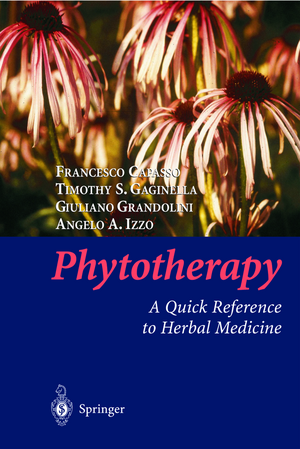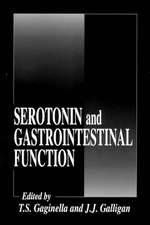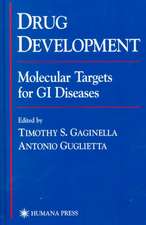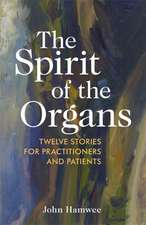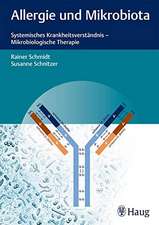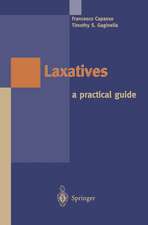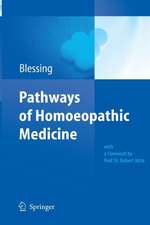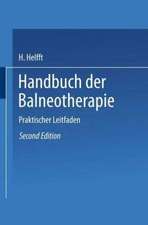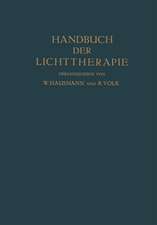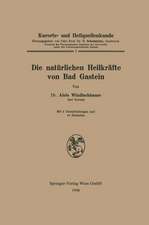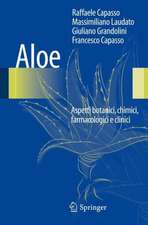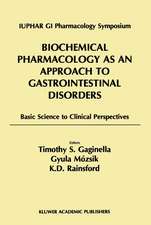Phytotherapy: A Quick Reference to Herbal Medicine
Autor Francesco Capasso, Timothy S. Gaginella, Giuliano Grandolini, Angelo A. Izzoen Limba Engleză Paperback – 14 iul 2003
About 30% of all prescriptions issued in the USA, Canada and Europe contain either a herb, a purified extract or an active component derived from herbs. However, medical practitioners are often confused by conflicting information available on the safety and efficacy of herbs; herbal medicines are often co-prescribed without proper attention to adjustment of dosages.
This reference guide treats the subject of herbal medicines in an integrated fashion with reference to pharmacognosy, pharmacology and toxicology. It will help to enable internists, phytotherapists, physicians, healthcare practitioners as well as students to understand why, when and how herbal medicines can be used in the treatment of diseases.
Clinical and toxicological findings of herbs and their dosages are described. A great deal of pathology and therapeutic information is included. A large iconographic section can be of help when the identification of a herbal drug is in doubt. Many 2c tables as well as figures are included to clarify complex mechanisms and other information. The most important medicinal plants and drugs are illustrated with exceptional 4c plates.
Preț: 783.54 lei
Preț vechi: 824.79 lei
-5% Nou
Puncte Express: 1175
Preț estimativ în valută:
150.00€ • 156.51$ • 125.74£
150.00€ • 156.51$ • 125.74£
Carte tipărită la comandă
Livrare economică 12-26 martie
Preluare comenzi: 021 569.72.76
Specificații
ISBN-13: 9783540000525
ISBN-10: 3540000526
Pagini: 424
Ilustrații: XIII, 424 p.
Dimensiuni: 127 x 190 x 25 mm
Greutate: 0.54 kg
Ediția:2003
Editura: Springer Berlin, Heidelberg
Colecția Springer
Locul publicării:Berlin, Heidelberg, Germany
ISBN-10: 3540000526
Pagini: 424
Ilustrații: XIII, 424 p.
Dimensiuni: 127 x 190 x 25 mm
Greutate: 0.54 kg
Ediția:2003
Editura: Springer Berlin, Heidelberg
Colecția Springer
Locul publicării:Berlin, Heidelberg, Germany
Public țintă
Professional/practitionerCuprins
I.- 1 Introduction.- 2 Definitions.- 3 History.- 4 The Complexity of Herbal Medicines.- 5 Are the Herbal Medicines Safe?.- 6 The Herbal Medicines and the Importance of the Scientific Research.- 7 Parts of the Plant to be used, Nomenc1ature, Drug Acquisition and Preservation.- 8 Active Principles.- 9 Therapeutic Overview of Galenical Preparations.- 10 Uses of Herbal Medicines in Specific Situations.- 11 Sources of Herbal Medicine Information.- 12 Herbal Product Regulations.- II.- 13 Plants and the Nervous System.- 14 Plants and the Cardiovascular System.- 15 Plants and Metabolie Diseases.- 16 Plants and the Renal System.- 17 Anti-inflammatory Plants.- 18 Plants and the Respiratory System.- 19 Adaptogenic Plants.- 20 Plants and the Reproductive System.- 21 Plants and the Digestive System.- 22 Plants, Liver and Biliary System.- 23 Plants and the Cutaneous System.- Identification Guide.
Recenzii
From the reviews:
"... a breath of fresh air in the plethora of books on plant pharmacology. It stands out for several reasons: (i) it is extremely accessible, abstaining from complicated mechanisms or difficult jargon; (ii) it is very well researched, extensively referenced and up to date; (iii) it incorporates a clinical perspective like no other such book I have seen... The strength of this book are its readability, its completeness, its solid foundation on reliable evidence and its clinical orientation. I cannot recommend this book highly enough..." (E. Ernst Exeter, UK, in: FACT, Vol 9(2), June 2004)
"In recent months, several excellent books … . "A quick reference to herbal medicine"– and that is precisely what this book is. … What makes this an outstanding book is its accessibility and its clinical relevance. … Clearly, this book was written with the busy clinician in mind and uses the language and logic that such professionals understand. … The authors of this excellent volume have provided an important service for the cause of evidence-based phytomedicine. I cannot recommend their book highly enough." (E. Ernst, Phytomedicine, Vol. 11, 2004)
"This reference guide treats the subject of herbal medicines in an integrated fashion with reference to pharmacognosy, pharmacology and toxicology. It will help to enable internists, phytotherapists, physicians, healthcare practitioners as well as students to understand why, when and how herbal medicines can be used in the treatment of diseases." (Acupuncture & Moxibustion, Vol. 3 (1), 2004)
"... a breath of fresh air in the plethora of books on plant pharmacology. It stands out for several reasons: (i) it is extremely accessible, abstaining from complicated mechanisms or difficult jargon; (ii) it is very well researched, extensively referenced and up to date; (iii) it incorporates a clinical perspective like no other such book I have seen... The strength of this book are its readability, its completeness, its solid foundation on reliable evidence and its clinical orientation. I cannot recommend this book highly enough..." (E. Ernst Exeter, UK, in: FACT, Vol 9(2), June 2004)
"In recent months, several excellent books … . "A quick reference to herbal medicine"– and that is precisely what this book is. … What makes this an outstanding book is its accessibility and its clinical relevance. … Clearly, this book was written with the busy clinician in mind and uses the language and logic that such professionals understand. … The authors of this excellent volume have provided an important service for the cause of evidence-based phytomedicine. I cannot recommend their book highly enough." (E. Ernst, Phytomedicine, Vol. 11, 2004)
"This reference guide treats the subject of herbal medicines in an integrated fashion with reference to pharmacognosy, pharmacology and toxicology. It will help to enable internists, phytotherapists, physicians, healthcare practitioners as well as students to understand why, when and how herbal medicines can be used in the treatment of diseases." (Acupuncture & Moxibustion, Vol. 3 (1), 2004)
Notă biografică
The authors are leading American and Italian scientists of Pharmacology and Pharmaceutical Technology who have for a long time researched the application of medicinal plants. They teach at the Universities of Wisconsin, Naples and Perugia.
Textul de pe ultima copertă
The book:
About 30% of all prescriptions issued in the USA, Canada and Europe contain either a herb, a purified extract or an active component derived from herbs. However, medical practitioners are often confused by conflicting information available on the safety and efficacy of herbs; herbal medicines are often co-prescribed without proper attention to adjustment of dosages.
This reference guide treats the subject of herbal medicines in an integrated fashion with reference to pharmacognosy, pharmacology and toxicology. It will help to enable internists, phytotherapists, physicians, healthcare practitioners as well as students to understand why, when and how herbal medicines can be used in the treatment of diseases.
The authors:
The authors are leading American and Italian scientists of Pharmacology and Pharmaceutical Technology who have for a long time researched the application of medicinal plants. They teach at the Universities of Wisconsin, Naples and Perugia.
Caracteristici
Uniquely illustrated (4c plant photographs, many line drawings of mode of drug action) Herbal formulas included 2c layout throughout Comparison tables of all drugs for each indication Handy, easy-to-use format Well-structured chapters with rigid substructure Strong focus on practice-oriented information, e.g. dosage, application, etc. Covers 146 medicinal plants
